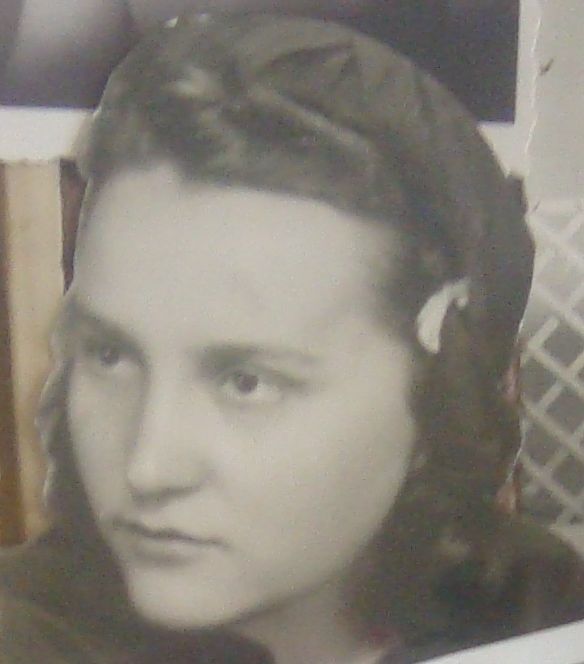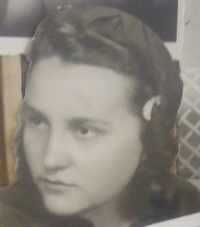It seems to me that patriotism is on the wane

Download image
Květoslava Zelená was born in Ledkov near Kopidlno in Czechoslovakia on 20 December 1921. Between the World Wars, she lived with her family in Česká Lípa and studied at a secondary vocational school for women in Děčín. Following the mobilization in 1938, she moved to Balkova Lhota near Tábor and she married gendarme Václav Nácal in 1939. They moved to České Budějovice and son Zdeněk was born the same year. Her husband joined the anti-Nazi resistance, charting the movements of German troops for his friend Jan Vycpálek who passed the intel to the Soviets. Jan Vycpálek was part of a group of five airmen who illegally crossed the border from the Protectorate of Bohemia and Moravia to Poland in 1939, and the Soviets offered them cooperation. The group of five was tasked with creating a network of contacts in the Protectorate and bringing the Soviets information about the movements of the German army. In 1941, however, the entire group was broken up, her husband was arrested, along with Květoslava Zelená and 198 other collaborators of the spy group. Květoslava Zelená was unaware of her husband’s activities, yet she was arrested and imprisoned in České Budějovice, Pankrác and then in Dresden. On 29 April 1943, the trial took place in Berlin. Her husband was sentenced to fifteen years’ imprisonment, Květoslava Zelená to two years’ imprisonment, and five others to death. The witness was then taken to the Aichach prison, from there to Prague in November 1943 and released in February 1944. Her husband served his sentence in Kaisheim and did not return to České Budějovice until July 1945. After the war, Květoslava Zelená worked as a secretary at the Department of Agriculture of the Regional National Committee and at the company’s Directorate of Agricultural Supply and Purchasing. At the time of filming in 2009 she lived in České Budějovice.
